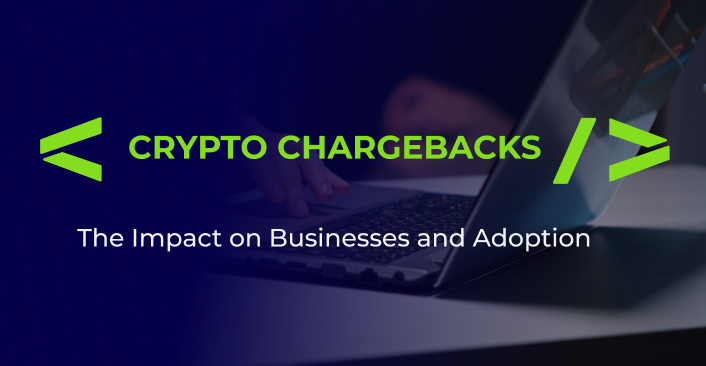
Crypto chargebacks are a topic of growing interest in the blockchain and cryptocurrency community. With the rise of digital currencies, the traditional mechanisms of dispute resolution, such as chargebacks, are being reevaluated in the context of decentralized, immutable transactions. This article delves into the concept of crypto chargebacks, their implications for consumers and merchants, and the potential for their implementation in the blockchain ecosystem.
Crypto Chargebacks: An Overview
For those unfamiliar with the term, a chargeback is a forced payment reversal initiated at the banking level. This typically occurs when a customer is dissatisfied with a purchase and fails to receive a refund from the merchant. The customer disputes the charge with their issuing bank, which then files a chargeback against the merchant’s acquiring bank.
In the traditional financial system, chargebacks are a legal requirement for all credit and debit purchases. However, in the realm of cryptocurrencies, there is no central authority to mandate or facilitate chargebacks. This is due to the decentralized nature of blockchain technology, which underpins cryptocurrencies.

The Immutable Nature of Crypto Transactions
Cryptocurrency transactions, including payments, are not subject to chargebacks due to the immutable nature of blockchain technology. Once a transaction is confirmed and added to the blockchain, it is practically irreversible. Altering a single entry would require altering all subsequent blocks and gaining the majority consensus of the network, which is computationally impractical.
This immutability of transactions is one of the key selling points of cryptocurrencies. It ensures transaction finality and reduces the risk of fraud. However, it also means that mistakes can be costly. If you send money to the wrong address, there is no way to retrieve the funds. Similarly, without chargebacks, there is no built-in consumer protection against fraud, misrepresentation, or non-delivery of goods and services.
The Possibility of Crypto Chargebacks
While the current state of blockchain technology does not allow for crypto chargebacks, it is theoretically possible for a cryptocurrency transaction to be reversed. However, this would significantly deviate from the principles of decentralization, immutability, and security that characterize most existing cryptocurrencies. It would also require some form of centralized control or arbitration, which could introduce its own risks and vulnerabilities.
Adding a chargeback mechanism would fundamentally alter the trust model of the cryptocurrency. Instead of being able to trust in the finality of transactions, participants would need to trust the entity or mechanism that decides whether or not to initiate a chargeback.
The Impact on Businesses and Adoption
The lack of chargebacks in cryptocurrencies presents both opportunities and challenges for businesses. On one hand, it can reduce certain types of fraud, such as chargeback fraud. On the other hand, it can increase the risk of other types of fraud, such as non-delivery of goods or services.
The lack of a legal framework for crypto chargebacks may also present challenges. In many jurisdictions, consumers have the right to dispute credit card transactions. A system that doesn’t allow for this could potentially run afoul of consumer protection standards, making it less appealing for merchants.
Crypto Chargebacks: A Double-Edged Sword
The concept of crypto chargebacks is a double-edged sword. On one side, the absence of chargebacks in the crypto space can be seen as a boon for merchants. Traditional chargebacks often come with hefty fees and can damage a merchant’s reputation. In the world of cryptocurrencies, once a transaction is confirmed, it is final. This eliminates the risk of chargebacks for merchants, providing them with more certainty and control over their transactions.
On the other side of the coin, the lack of crypto chargebacks can be a significant hurdle for consumers. Chargebacks serve as a form of consumer protection, allowing customers to dispute transactions in cases of fraud or dissatisfaction with goods or services. Without this option, customers may be less willing to use cryptocurrencies for payment, reducing their utility for merchants.
The Role of Smart Contracts in Crypto Chargebacks
While the blockchain technology that underpins cryptocurrencies does not inherently allow for chargebacks, smart contracts could potentially provide a solution. Smart contracts are self-executing contracts with the terms of the agreement directly written into code. They automatically execute transactions when certain conditions are met, eliminating the need for a third party.
In the context of crypto chargebacks, smart contracts could be programmed to hold funds in escrow until the buyer confirms receipt and satisfaction with the goods or services. If a dispute arises, the smart contract could provide a mechanism for resolution, potentially even allowing for a form of crypto chargeback.
However, implementing such a system would not be without challenges. It would require a high level of technical expertise and could introduce new vulnerabilities. For example, if the smart contract code contains bugs, it could be exploited by malicious actors.
Crypto Chargebacks and Regulatory Considerations
The issue of crypto chargebacks also raises important regulatory considerations. In many jurisdictions, consumer protection laws require the ability to dispute transactions. Cryptocurrencies that do not allow for chargebacks could potentially run afoul of these laws.
Regulators around the world are grappling with how to apply existing laws to the rapidly evolving world of cryptocurrencies. Some have called for new regulations specifically tailored to cryptocurrencies, while others argue that existing laws can be adapted to this new context.
The lack of regulatory clarity around crypto chargebacks adds another layer of complexity to this issue. It underscores the need for ongoing dialogue between regulators, the blockchain community, and other stakeholders to ensure that the potential benefits of cryptocurrencies can be realized while also protecting consumers.
Crypto Chargebacks: A Work in Progress
The concept of crypto chargebacks is a work in progress. It represents a complex intersection of technology, law, and consumer protection. While the current state of blockchain technology does not allow for traditional chargebacks, there is potential for innovative solutions, such as smart contracts, to provide a form of dispute resolution in the crypto space.
Having said that, these solutions are not without their challenges. They require technical expertise to implement, could introduce new vulnerabilities, and must navigate a complex and evolving regulatory landscape.
The blockchain technology and cryptocurrency industry continues to evolve and the conversation around crypto chargebacks will undoubtedly continue. It is a conversation that will require the input and collaboration of a diverse range of stakeholders, from technologists to regulators to consumers. Through this dialogue, the community can work towards solutions that balance the unique benefits of cryptocurrencies with the need for consumer protection.
Source: dailyhodl.com
